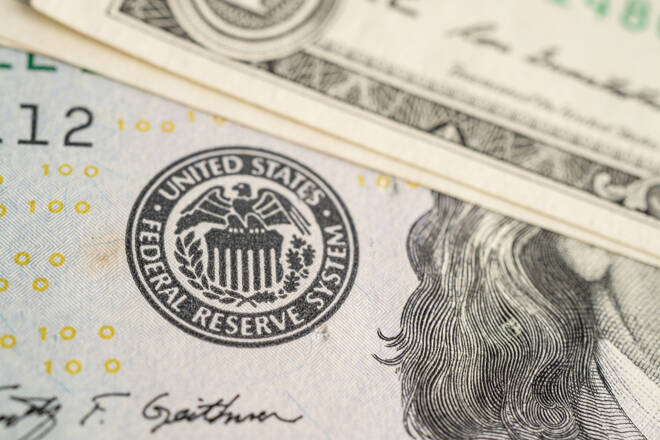Advertisement
Advertisement
EUR/USD, GBP/USD, DXY Price Forecast: DXY Climbs Above $104; More Upside Ahead?
By:
Key Points:
- German Import Prices stagnate, signaling Eurozone's economic stagnation; EUR/USD reacts, trading at 1.08324.
- UK's GfK Consumer Confidence and steady Retail Sales showcase resilience; GBP/USD at 1.26424.
- Dollar Index's rise to 104.223 reflects bullish sentiment, influenced by upcoming Fed and FOMC speeches.
In contrast, the UK’s GfK Consumer Confidence index mirrored expectations and previous readings at -21, while Retail Sales unexpectedly maintained a 0.0% change, contrasting with a forecasted -0.4% and a prior 3.6%, indicating resilience in consumer spending.
Events Ahead
The upcoming schedule highlights significant events with potential market impact. The focus turns to the U.S. with Fed Chair Powell set to speak at the “Fed Listens” event in Washington DC, accompanied by remarks from FOMC members Barr and Bostic, which could influence the Dollar Index and, by extension, both the EUR/USD and GBP/USD pairs.
On the European front, the German ifo Business Climate is expected at 85.9, slightly above the 85.5 forecast, alongside speeches by German Buba President Nagel at the Euro Summit and a digitalization and finance event in Frankfurt, presenting pivotal moments for the EUR/USD pair.
US Dollar Index (DXY)
On March 22, the Dollar Index saw a modest increase of 0.24%, reaching 104.223. This upward movement places it above the pivotal point of 103.619, indicating a bullish trend in the short term. Immediate resistance levels are identified at 104.281, 104.667, and 104.978, which could pose challenges to further gains.
Conversely, support levels at 103.166, 102.766, and 102.359 mark thresholds where potential declines may find a halt. Both the 50-Day and 200-Day Exponential Moving Averages hover around 103.56, suggesting a closely contested market sentiment.
Consequently, the Dollar Index’s trend remains bullish above 103.619, with a descent below this mark potentially signaling a shift towards a bearish trajectory.
EUR/USD Technical Forecast
About the Author
Arslan Aliauthor
Arslan is a finance MBA and also holds an MPhil degree in behavioral finance. An expert in financial analysis and investor psychology, Arslan uses his academic background to bring valuable insights about market sentiment and whether instruments are likely to be overbought or oversold.
Advertisement
